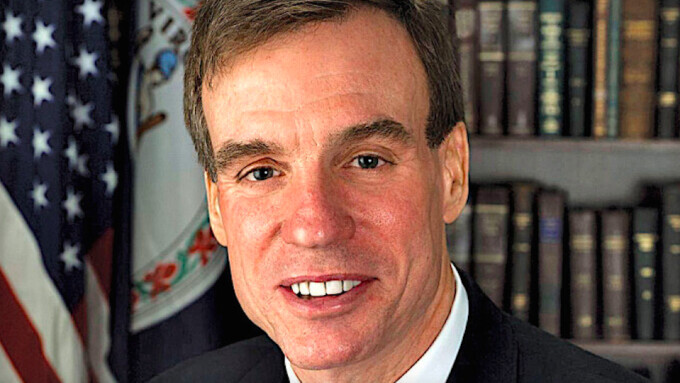WASHINGTON, D.C. — Adult performers and other sex workers are warning against a new legislative attempt to expand on the harms to the community effected by FOSTA-SESTA by further eroding Section 230 protections.
In a piece published today by Vice’s Motherboard vertical, sex worker groups spoke out against the Safeguarding Against Fraud, Exploitation, Threats, Extremism, and Consumer Harms Act — or SAFE TECH Act.
The bill was re-introduced to the Senate in February by Democratic Senator Mark Warner (Virginia) and co-sponsored by Senators Mazie Hirono (D-Hawaii) and Amy Klobuchar (D-Minn).
“Supporters of the SAFE TECH Act want to further limit the scope of Section 230, making companies responsible for policing user speech on online platforms,” explains Vice’s Lauren Crosby Medlicott in the article, quoting a March interview with Warner when he was promoting the bill.
“What I don't want is to have these giant providers continue to use Section 230 as this immunity, a kind of ‘get-out-of-jail-free’ card,” Warner said.
However, Medlicott continues, “sex workers and free speech advocates warn that eliminating these liability protections means greater censorship of online platforms as companies try to reduce the risk of landing in legal trouble as a result of third-party user content.”
A Bill That Would 'Inevitably Harm' Marginalized Groups
"The SAFE TECH Act would mean I can’t afford to run my own website and will lose income from many other sites," said performer and activist Mary Moody. "It will impact any social media platforms I use for marketing.”
Other voices in the sex work community also spoke to Vice about their concerns.
Jason Kelley, a digital strategist at digital rights advocacy group Electronic Frontier Foundation (EFF), explained that Section 230 “underpins much of the internet, offering legal protections for companies, news organizations, creators of all stripes, political activists, nonprofits, libraries, educators, governments and regular users.”
”Without it, any online service that did continue to exist would more than likely opt for censoring more user-generated content — and that would inevitably harm marginalized groups more than others,” Kelley added.
Sex workers, Medlicott wrote, “would be one of those marginalized groups affected by SAFE TECH, and many fear that their work and safety will be compromised if the bill passes.”
SAFE TECH's Downstream Effect
Blair Hopkins, deputy director of sex worker advocacy group SWOP Behind Bars, told Vice she’s dreading the “inevitable” Section 230 reform.
“Section 230 protects sex workers in a kind of ancillary way because it allows them to conduct their business on platforms without interruption from the platforms,” she added, expressing concern that SAFE TECH will have “a downstream effect of unintended consequences.”
According to Medlicott, “while FOSTA was touted as a way to curb human trafficking by creating liability for platforms that facilitated trafficking, it simply didn’t work. In fact, the increased vulnerabilities of sex workers resulting from FOSTA, combined with the new difficulties police had tracking traffickers, actually meant that FOSTA increased cases of human trafficking."
To read “Sex Workers Explain Why the SAFE TECH Act Will Break the Internet,” visit Vice.com.
Main Image: Sen. Mark R. Warner (D-Va.).




